This laboratory is in charge of research and education on theories, methodologies and computer-based techniques for rationalizing the process of product design and development. They are aimed to create superior innovative designs in a totally compromised way among values, functions, cost, time, etc. This laboratory delineates the four research directions, i.e., Products, Process, Function & Structure and System of Systems.
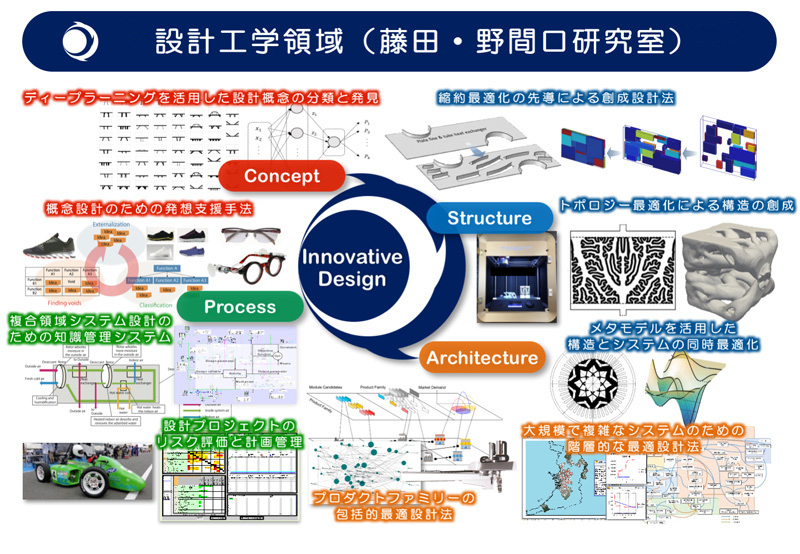
Precision Processing Subarea
Enomoto Laboratory conducts education and R&D activities of precision/ultra-precision machining, especially cutting, grinding and polishing. The targets of our laboratory are to “achieve ultimate manufacturing” and “create new values” in the precision processing area.
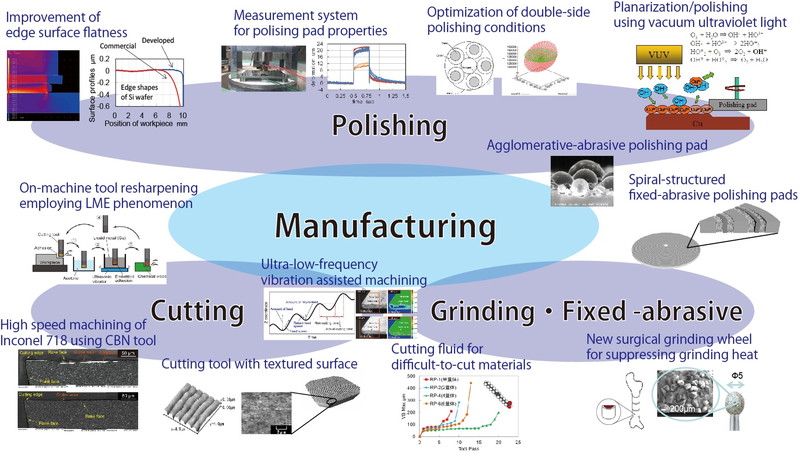
We integrate nano measurement and fabrication in order to establish the highly developped nano production system. Our research are based on the laser applied measurement and fabrication techniques. One of the typical research topics is developping nano-CMM system for nano in-process measurement. Optical radiation force is applied for controlling the sensitive non-contact probe in the integrated nano maching system. This probe is expected to realize better than 10nm resolution during 3-D coordinate measureing.
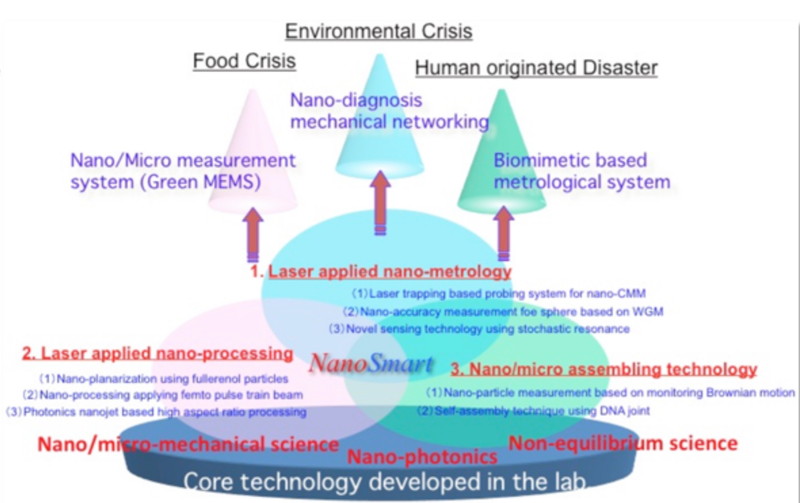
This laboratory conceptualizes the nature of artifact systems desirable for a sustainable society and systematizes design methodologies for artifact life cycles and product service systems from the environmental, social, and economic aspects. The basis of our research is design engineering, life cycle engineering, and ecology.
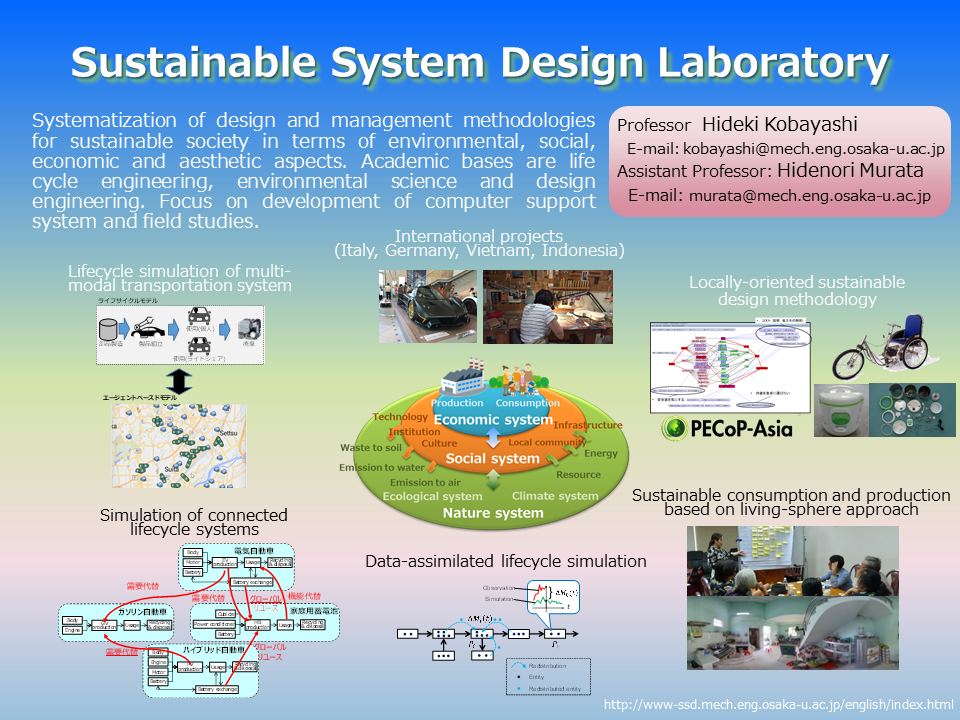
We are studying various types of quality-of-life technologies based on human physiology, psychophysics, and biomedical engineering that can support the daily life and rehabilitation of persons with disabilities and elderly individuals through multidisciplinary collaboration. The research areas include assistive technologies for eating, mobility, and communication, healthcare techniques for prevention of frailty and lifestyle diseases as well as sensing and actuation devices for human augmentation.
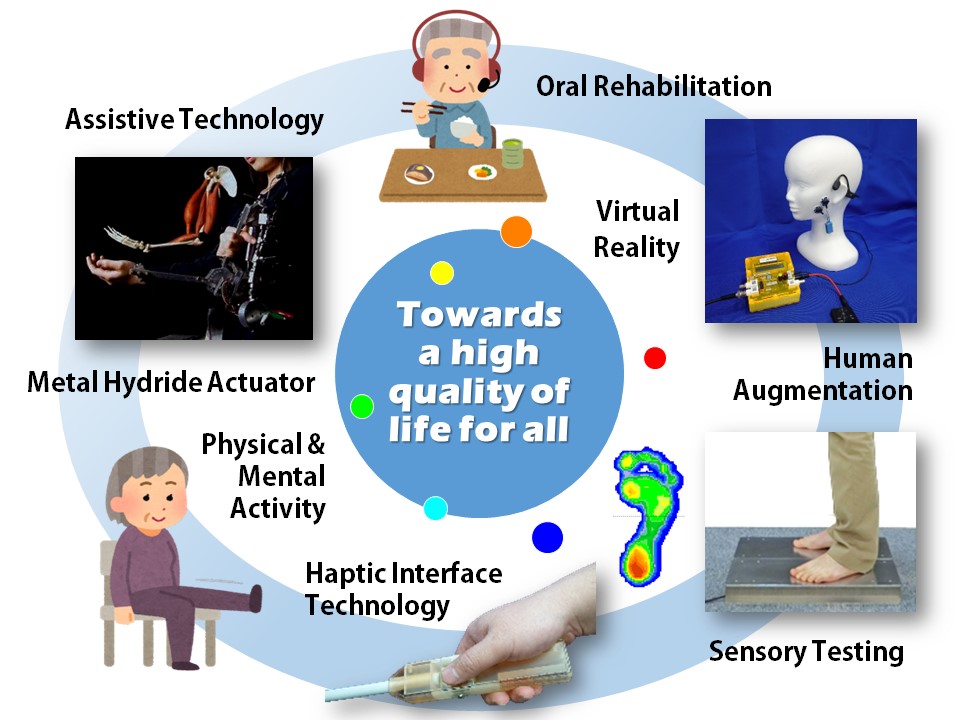
Top